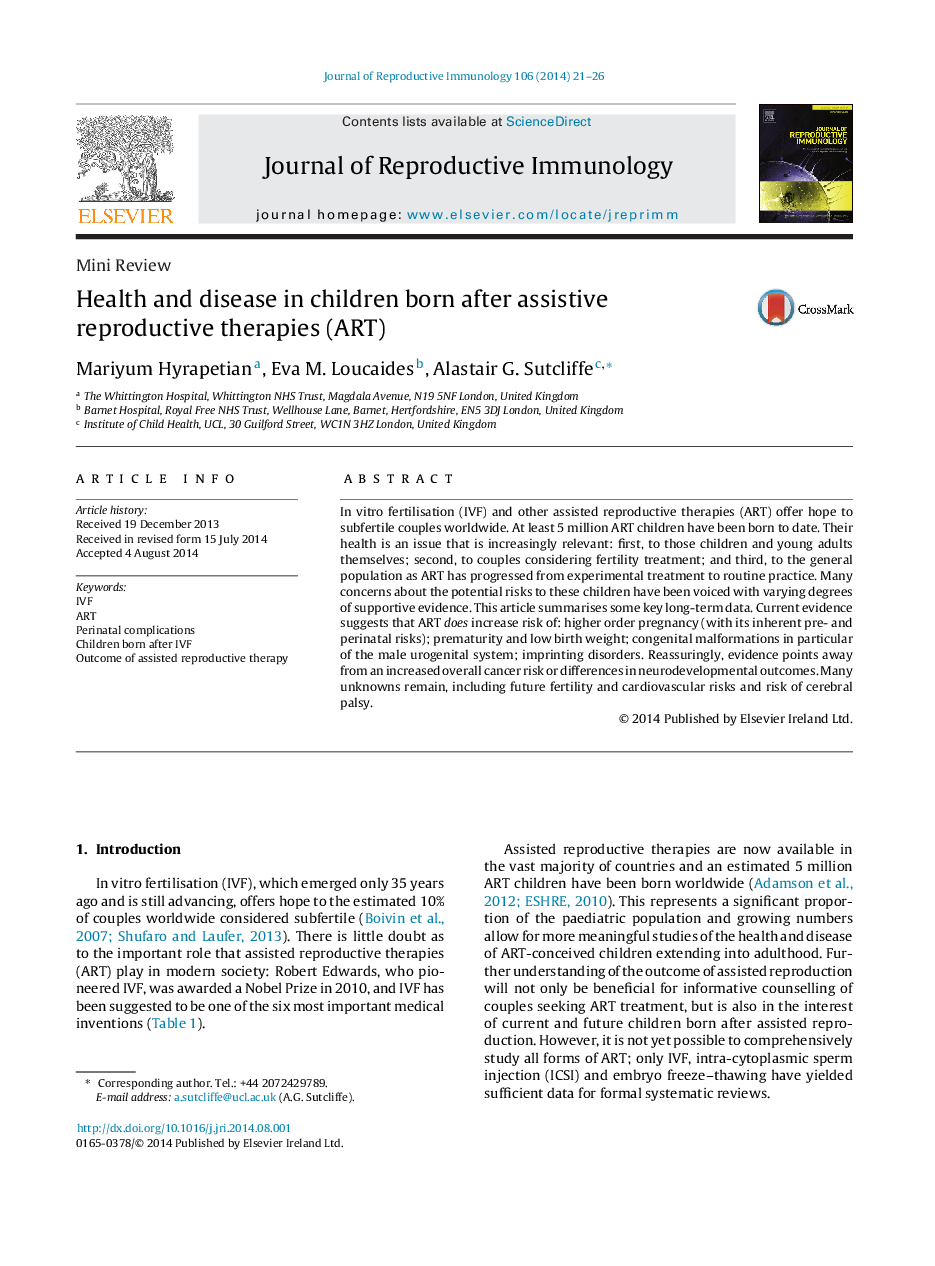| Article ID | Journal | Published Year | Pages | File Type |
|---|---|---|---|---|
| 3961283 | Journal of Reproductive Immunology | 2014 | 6 Pages |
•A growing number of children are now born using assisted reproductive therapies.•Increased risks such as multiple pregnancies and premature birth are well documented.•Current evidence reassures that risks of outcomes such as cancer are not increased.•Follow up of the long-term health of ART children will remain important in the future.
In vitro fertilisation (IVF) and other assisted reproductive therapies (ART) offer hope to subfertile couples worldwide. At least 5 million ART children have been born to date. Their health is an issue that is increasingly relevant: first, to those children and young adults themselves; second, to couples considering fertility treatment; and third, to the general population as ART has progressed from experimental treatment to routine practice. Many concerns about the potential risks to these children have been voiced with varying degrees of supportive evidence. This article summarises some key long-term data. Current evidence suggests that ART does increase risk of: higher order pregnancy (with its inherent pre- and perinatal risks); prematurity and low birth weight; congenital malformations in particular of the male urogenital system; imprinting disorders. Reassuringly, evidence points away from an increased overall cancer risk or differences in neurodevelopmental outcomes. Many unknowns remain, including future fertility and cardiovascular risks and risk of cerebral palsy.
